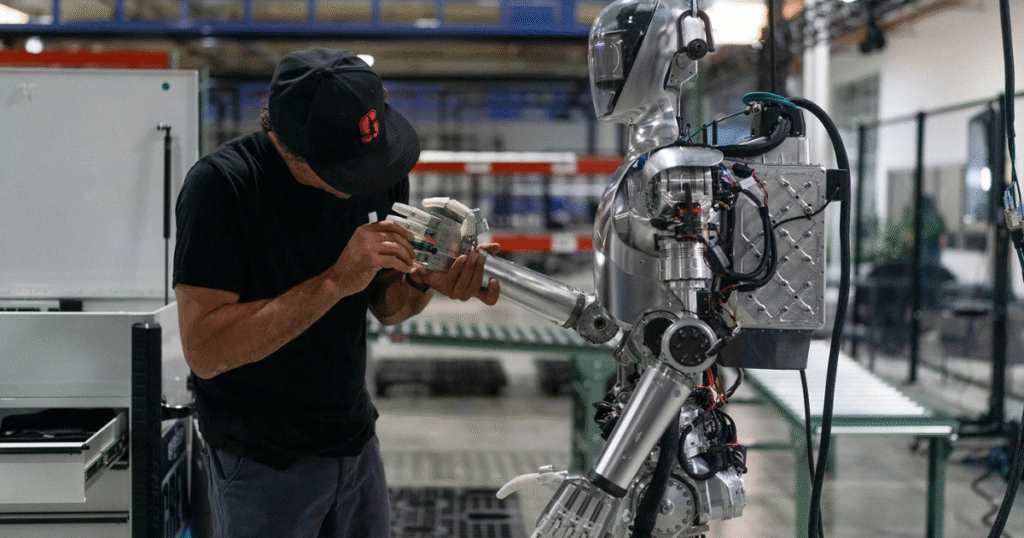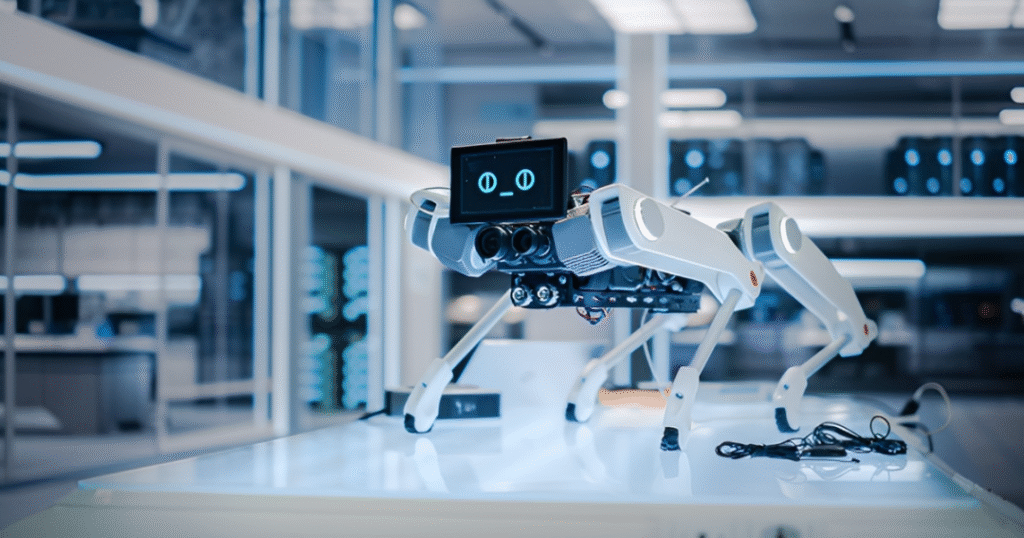The LiDAR and robotics industry has grown from niche technology into a mainstream force driving industries like transportation, agriculture, construction, and defense. In 2025, a new wave of startups is stepping in with solutions that go beyond research projects and pilot tests. These companies are solving real-world problems by building smarter, more efficient, and safer systems powered by advanced sensors and robotics.
This blog highlights five promising LiDAR and robotics startups that deserve attention. Each of them is tackling challenges in different industries, and their work shows why top lidar startups 2025 are gaining global recognition.
Why LiDAR and Robotics Are Becoming So Important
What is LiDAR?
LiDAR (Light Detection and Ranging) is a sensing technology that uses laser light to measure distances and create accurate 3D maps of environments. It has become essential for tasks that require precision, such as autonomous driving, surveying, and industrial inspection.
The Role of Robotics
Robotics extends LiDAR’s power by turning data into action. Robots can navigate, inspect, or even build in environments where humans face limitations. When combined with LiDAR, robotics offers better accuracy, safety, and efficiency in operations.
The Changing Landscape of LiDAR and Robotics Startups
Just five years ago, LiDAR technology was too expensive for widespread adoption. But recent price drops, smaller sensors, and AI-driven software have opened the door for startups to bring solutions to market. Unlike larger corporations that move slowly, startups are agile and can quickly adapt their products to industries like agriculture, logistics, and construction.
In this robotics startup spotlight, we’ll review five companies using LiDAR and robotics to solve pressing issues and create measurable impact.
Aeva: Smarter Sensors for Safer Roads
Company Overview
Aeva is a startup based in California that focuses on improving LiDAR sensors for the automotive industry. Their technology goes beyond traditional 3D mapping by adding a new layer of data — velocity. This means their sensors can not only detect the shape of an object but also measure how fast it’s moving.
Problem They Solve
One of the biggest challenges for autonomous vehicles is distinguishing between static and moving objects. For example, telling the difference between a parked car and one that is about to pull out. Aeva’s sensors solve this by offering instant velocity detection.
Real-World Applications
- Autonomous cars gaining safer navigation in busy cities
- Trucks using the system to avoid accidents on highways
- Delivery robots ensuring smoother last-mile operations
By focusing on both precision and affordability, Aeva is positioning itself among the top lidar startups 2025 and changing how vehicles perceive their surroundings.
Exyn Technologies: Autonomous Drones for Tough Environments
Company Overview
Philadelphia-based Exyn Technologies specializes in autonomous aerial drones powered by advanced LiDAR systems. Their drones are designed to work in areas where GPS does not function, such as underground mines or dense forests.
Problem They Solve
Traditional surveying methods in mining are dangerous and time-consuming. Workers often need to enter unstable tunnels or hazardous areas to collect data. Exyn’s drones can fly autonomously in these environments, creating detailed 3D maps without risking human lives.
Real-World Applications
- Mining companies using drones for safer inspections
- Construction firms surveying large, complex sites
- Emergency services mapping collapsed buildings
Exyn demonstrates how startup lidar mapping companies are pushing boundaries in safety and efficiency, with direct benefits for industries that depend on accurate data.
Nuro: Robotics for Everyday Deliveries
Company Overview
Nuro is a robotics company focused on autonomous delivery vehicles. Unlike self-driving cars meant for passengers, Nuro designs small, electric vehicles that transport goods like groceries, medicine, or takeout orders.
Problem They Solve
Last-mile delivery is costly and inefficient for many retailers and restaurants. Human drivers face traffic, high labor costs, and limited delivery speed. Nuro’s robotic vehicles offer a scalable solution.
Real-World Applications
- Grocery chains using Nuro vehicles to cut delivery costs
- Pharmacies ensuring fast delivery of prescriptions
- Local restaurants offering affordable robotic delivery options
By using LiDAR for navigation and robotics for automation, Nuro shows how technology can make everyday services faster and more reliable.
Outrider: Automating Logistics Yards
Company Overview
Outrider is a startup focused on automating distribution yards, where trucks load and unload trailers. These spaces are critical for supply chains but are often slow, labor-intensive, and prone to accidents.
Problem They Solve
Logistics yards face bottlenecks due to manual trailer movement and safety hazards. Outrider’s autonomous yard trucks, equipped with LiDAR and advanced robotics, can move trailers efficiently and safely.
Real-World Applications
- Retailers managing large warehouses more effectively
- E-commerce companies speeding up delivery operations
- Freight companies reducing downtime in transport hubs
By solving a behind-the-scenes but crucial problem, Outrider highlights why the robotics startup spotlight matters — real change often starts in places consumers rarely see.
Agtonomy: Smarter Farming with LiDAR Robots
Company Overview
Agtonomy is a startup focused on agriculture, using LiDAR-powered autonomous tractors and farming robots to support farmers. Based in California, their mission is to help farms run more efficiently while addressing labor shortages.
Problem They Solve
Modern farming faces high costs, labor shortages, and environmental concerns. Traditional tractors require skilled operators, but Agtonomy’s system allows farmers to automate tasks like plowing, spraying, or transporting crops.
Real-World Applications
- Vineyards using autonomous tractors to manage fields
- Farms cutting costs on routine labor tasks
- Sustainable practices through precision spraying and soil management
Agtonomy is a prime example of how startup lidar mapping companies are extending beyond transportation and into food production.
Broader Impact of These Startups
Safer Workplaces
From mines to warehouses, these startups are reducing the risks humans face in hazardous environments.
Cost Savings
Automation powered by LiDAR and robotics cuts down on wasted time, labor costs, and inefficiencies.
Environmental Benefits
Smarter mapping and robotic systems allow industries to reduce waste, lower emissions, and operate more sustainably.
Challenges Ahead for LiDAR and Robotics Startups
Even with their promise, startups face hurdles:
- High Costs: While prices are falling, LiDAR systems remain costly for smaller businesses.
- Regulations: Autonomous systems face strict safety and compliance requirements.
- Adoption Rates: Some industries resist automation due to training costs or fear of job losses.
Still, the rapid growth of top lidar startups 2025 suggests these obstacles are being addressed through better products and customer-focused solutions.
What Sets These Startups Apart?
These five companies share some key qualities:
- Focus on Real Problems: Instead of chasing hype, they target issues that industries urgently need solved.
- Partnerships: Collaborating with large corporations and governments helps them scale faster.
- User-Centered Design: They build technology with practical use cases in mind, not just advanced features.
The Future of LiDAR and Robotics Innovation
The future of LiDAR and robotics is not just about self-driving cars. It’s about making everyday industries safer, more productive, and more sustainable. From delivering groceries to farming vineyards, startups are showing that these technologies are here to stay.
As robotics startup spotlight trends gain traction, we can expect more companies to enter the field. What separates winners from others will be their ability to balance innovation with practical problem-solving.
Read More Interesting and Informational Blogs Please Visit Our Website Lidarmos
Final Thoughts
The five startups covered here — Aeva, Exyn Technologies, Nuro, Outrider, and Agtonomy — represent the strength of today’s LiDAR and robotics ecosystem. They are not just building advanced systems; they are applying them to solve real, pressing problems across industries.
For anyone following startup lidar mapping companies or looking to track top lidar startups 2025, these companies are worth watching. Their work signals a shift from research to real-world solutions, where technology meets practicality.
By keeping an eye on these innovators, businesses and investors can better understand how robotics and LiDAR are shaping the future of safety, efficiency, and productivity.


